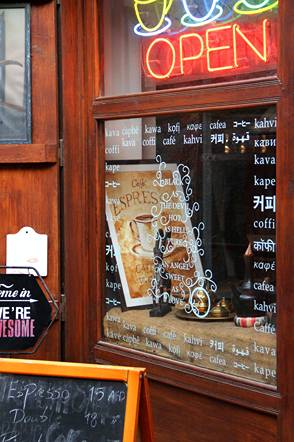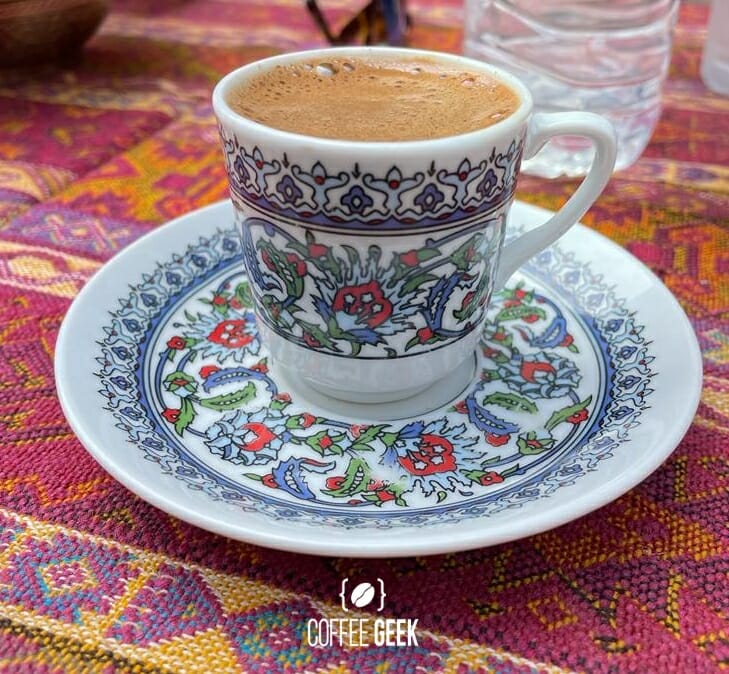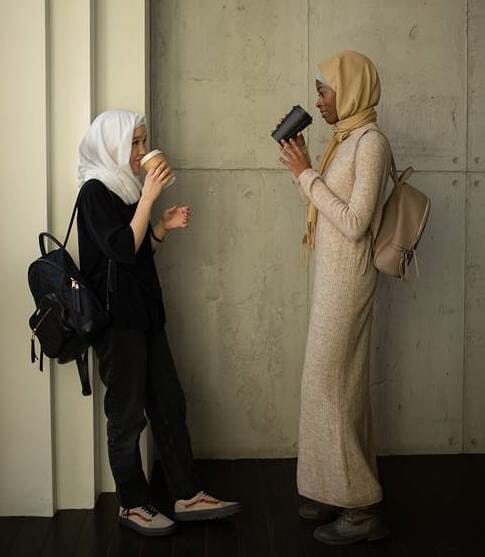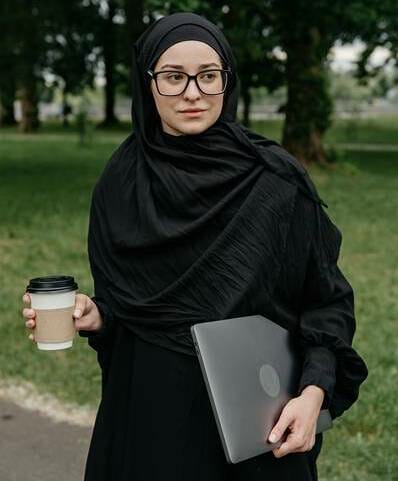Coffee has been a staple beverage for many people across the globe, offering not only a delicious taste but also a much-needed energy boost.
While caffeine consumption is a common habit, it is essential to take into account the religious guidelines and restrictions that may apply to some individuals.
Can Muslims drink coffee? The Islamic dietary guidelines classify foods and beverages into two categories, halal (permissible) and haram (forbidden).
Deciding whether coffee consumption is halal or haram is a matter subject to varying opinions among Islamic scholars.
Although the consumption of coffee in Islam is generally permissible, it is crucial to learn about the different viewpoints regarding coffee’s status in Islam, to ensure a well-informed decision is being made to abide by one’s faith – caffeine haram or caffeine halal.

In general, coffee is found to be caffeine halal, with some scholars agreeing that moderate caffeine consumption is permissible.
However, it is crucial to consider the potential health risks and cultural implications that may change the status from halal to haram, based on individual interpretations.
Understanding the factors that influence coffee’s classification in Islam can help Muslims navigate the complex relationship between faith and the consumption of caffeinated drinks.
Islamic Perspective on Coffee
Halal and Haram
The Islamic perspective on coffee is that it is generally considered permissible to drink. However, there are certain caveats that some Muslims follow.
For instance, coffee should be consumed in moderation, as it is a stimulating drink.
Additionally, excessive coffee and caffeine consumption can lead to addiction, which is something that Islam advises its followers to avoid in coffee houses.
Islamic Scholars’ Views
There is a range of opinions among Islamic scholars on whether coffee is halal or haram. Some scholars believe that as long as caffeine is consumed in moderate amounts, drinking coffee is permissible.
Others, on the other hand, argue that any amount of coffee consumption is prohibited due to its potential health risks and cultural implications.
Muslims need to consult their local scholars or imams for guidance on this matter.
Is Coffee Halal?
The majority of Islam scholars agree that coffee is halal and permissible for Muslims to consume.
This view is based on the principle that all things are originally considered halal unless there is explicit evidence to the contrary.
Furthermore, coffee beans are not considered harmful or intoxicating, which makes them permissible according to Islamic dietary guidelines.

Is Coffee Haram?
A minority of scholars argue that drinking coffee is haram.
These scholars base their opinion on the potential negative effects of excessive consumption of caffeine, such as addiction, anxiety, and stay-awake sleep disturbances.
However, this stance is not universally accepted, and many scholars maintain that moderate coffee consumption is considered halal.
Quran and Hadith References
While the Quran and Hadith do not explicitly mention coffee or caffeine, there are general principles in Islamic teachings that can be applied to the consumption of coffee.
For example, the Quran encourages moderation in all things (Surah Al-A’raf, 7:31), and the Prophet Muhammad (peace be upon him) warned against excessive consumption of anything that could lead to harm (Hadith Tirmidhi).
In conclusion, the consumption of coffee in Islam is generally permissible, but Muslims are advised to practice moderation in their consumption and consult their local scholars or imams for guidance.
This ensures that they follow the principles of Islam and stay within the bounds of halal and haram.
Coffee in the Muslim World
Coffeehouses in the Middle East
The history of coffee dates back to the 15th century in Yemen, when it was first consumed as a beverage in Sufi Shrines. The popularity of coffeehouses spread throughout the Middle East and played an essential role in Muslim social life.
In these establishments, people gathered to discuss culture, politics, and religion over a cup of coffee. However, the expansion of coffeehouses raised some concerns, such as the Ottoman Sultan Murad IV, who deemed coffee drinking as an immoral activity, believing it promoted social decay.
Arabic and Turkish Coffee
Two types of coffee are rooted in the Islamic world: Arabic coffee and Turkish coffee. Arabic coffee is known for its unique taste, achieved by mixing coffee beans with spices such as cardamom and saffron.
In contrast, Turkish coffee is recognized for its strong flavor and unique brewing method, which involves grinding the beans very finely before preparing the beverage.
Is Coffee Halal?
The question of whether coffee is considered halal or haram has different opinions among Muslim scholars. Generally, caffeine is not explicitly forbidden in Islam.
Various scholars maintain that it is lawful to drink, while others hold particular caution regarding excessive consumption.
The primary consensus is that moderate consumption is allowed, given there are no harmful consequences to an individual’s health or societal functioning.
Is Coffee Haram?
While Sultan Murad IV deemed coffee as an immoral activity, it is worth noting that his perspective was not a universally accepted view within the Muslim world.
In Muslim culture, many Islamic scholars believe that coffee is not haram, as it does not intoxicate or be bad to the body to one’s health when consumed in moderation.
As long as the consumption of coffee doesn’t lead to negative effects, it is generally considered permissible within Islamic guidelines.
Overall, coffee plays a significant role in the Muslim world, demonstrating the rich cultural history of the Islamic World and its implications on contemporary Muslim life.
Moderate coffee consumption is generally considered permissible by Islamic law, as long as it doesn’t interfere with an individual’s health or societal relationships.
Health Benefits and Risks of Coffee
Benefits
Coffee potentially has several health benefits, one of which is being associated with a lower risk of type 2 diabetes1.
In fact, moderate coffee intake (about 2-5 cups a day) may reduce the likelihood of developing heart disease2.
Additionally, coffee consumption has been linked to a decreased risk of liver and endometrial cancers, Parkinson’s disease, and depression3.
Health Risks
On the other hand, coffee has some potential health risks as well. It’s widely known to cause anxiety in some individuals, especially when consumed in large amounts4.
High coffee consumption might also increase the risk of stroke5.
Is Coffee Halal?
When it comes to coffee consumption in the Muslim community, opinions on its permissibility vary widely.
Some Islamic scholars believe that as long as caffeine is consumed in moderate amounts, drinking coffee is permissible6.
On the contrary, other scholars argue that any amount of coffee is prohibited due to health risks and cultural implications7.
Is Coffee Haram?
Although opinions vary, the general consensus is that coffee is not inherently haram or forbidden.
Personal preference plays a significant role in the decision to consume coffee among Muslims.
Some may choose to avoid it altogether due to the potential health risks, while others may decide to moderate their intake to enjoy its benefits8.
In summary, this section provides an overview of the potential health benefits and risks of coffee, as well as discusses its halal and haram status within the Muslim community.
Ultimately, personal preference and individual tolerance to caffeine will determine whether a person chooses to enjoy coffee or abstain from it.
FAQs
Can Muslims drink coffee?
Yes, Muslims can drink coffee. Coffee is not explicitly mentioned in the Quran or Hadith, so it is generally considered permissible (halal) for Muslims to consume.
What does Islam say about coffee?
Islam does not have any specific teachings about coffee. However, it is generally encouraged for Muslims to consume food and drinks in moderation and to avoid anything that may be harmful to their health or well-being.
Is coffee allowed during Ramadan?
Yes, Muslims are allowed to drink coffee during Ramadan, but only during the permitted hours of eating and drinking. Muslims who are fasting during Ramadan are not allowed to consume any food or drinks, including coffee, from sunrise to sunset.
Are there any types of coffee that Muslims should avoid?
Muslims should avoid any coffee that contains non-halal ingredients, such as alcohol or animal-derived additives. Additionally, some Muslims may choose to avoid coffee that is produced in countries or by companies that do not adhere to halal practices.
Can Muslims drink coffee with milk or cream?
Yes, Muslims can drink coffee with milk or cream as long as the milk or cream is halal. Muslims who adhere to strict halal practices may choose to only consume coffee with plant-based milk alternatives, such as soy or almond milk.
What is the Islamic perspective on caffeine consumption?
There is no specific Islamic teaching about caffeine consumption. However, some Islamic scholars have expressed concerns about excessive caffeine consumption and its potential health effects. Muslims are encouraged to consume all food and drinks in moderation and to prioritize their health and well-being.






